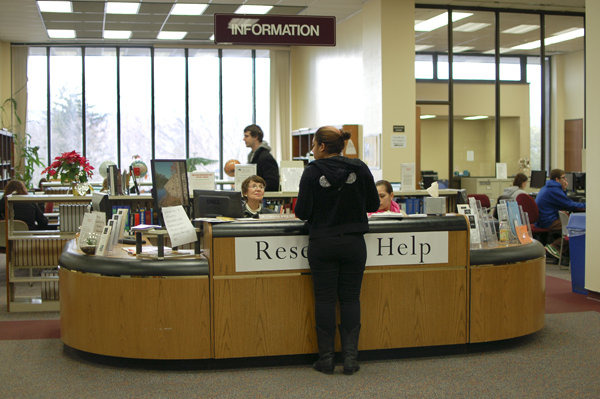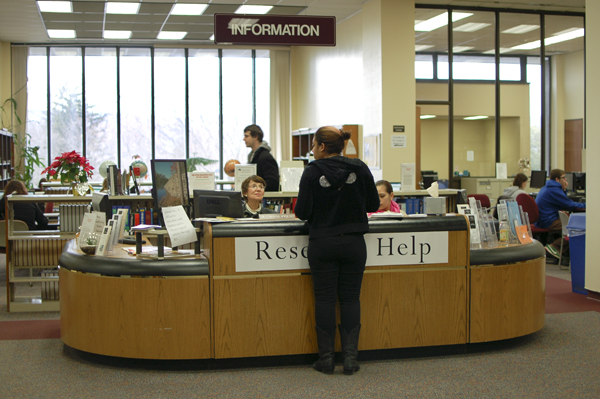


*After the publication of this article, a campus-wide email was sent on Feb. 9, “encouraged” by the offices of both the president and interim provost, concerning the extension of the Sojourner Truth Library hours. The library will now be open from 10 a.m. to 11:30 p.m. on Sundays, from Feb. 12 through March 11, and from 8 a.m. to 9 p.m. on Saturdays, effective through March 3. Friday operating hours remain the same as initially reported.
The email also released the hours of operation during mid-terms effective from March 4 to 15. This extension “successfully reflects efforts to increase the hours of access of this research facility,” according to the email.
—-
Before the Occupy Library movement, the library hours were reduced due to budget cuts from the state, according to a petition circulated by “students with a common goal.”
Friday hours prior to the cut were 8 a.m. to 9 p.m. and then were reduced four hours to 8 a.m. to 5 p.m.
Saturday hours prior to the cut were 10 a.m. to 9 p.m. and then were reduced four hours to 1 to 8 p.m.
Sunday hours went unchanged from 1 to 11:30 p.m.
The occupation on Dec. 9, 2011 and subsequent petition efforts only saw the restoration, but not the extension of the normal operating hours. Gwenwald said the cuts targeted hours in which the fewest number of people had utilized their services. She recalled a situation where there were four employees to four people on the main floor, a 1-to-1 ratio.
“What kind of need is this serving?” she said. “If [students] are not over here working, [it’s] a waste of valuable resources for a campus that is struggling. If [they’re] not working with the collection, not terribly productive.”
She said the library traffic is about 2,000 per day, but on Saturday, “it’s a lot fewer.”
Despite this, she called the occupation movement an “effective and respectful action.” Gwenwald said she was impressed with the depth of the conversation and she described students as calm and respectful. Overall, she called the dialogue between administrators and students “very productive.”
Torsney shared this sentiment and said the students who took part in the Occupy movement were more concerned for their fellow peers, whom might not have access to academic resources.
“[I’m] impressed with students in [the] Occupy group, [they were] not for themselves, but other students working two to three jobs, [or] living off campus without computer access,” she said. “[They were] advocating for other students, and had a deep sense of community. The outcome from the meeting was quite good.”
Torsney said those involved were respectful. She said after the library closed they stayed until about 11:30 p.m. to midnight, and the movement used no additional resources, like security.
Still, many said that the movement changed the course of the conversation. Macaluso said the dialogue provides an outlet to give feedback for the library’s progress.
“Outlets where we might tell people effectively and now often news, services and programs and events,” he said. “New means to interact with people, Occupy has taken steps towards introducing us to students in a new way.”
As for the Occupy movement on campus, member Ashley Drzymala said they still have requests geared toward the administration.
“We continue to fight for more hours, more study space, more computer and Internet access etc.,” she said. “Also, finding ways to deal with the upcoming library renovations that, surprisingly, most students do not realize are happening this fall. We will be losing the first floor of the library for at least a year, and that’s only if construction goes as ‘planned.’”
